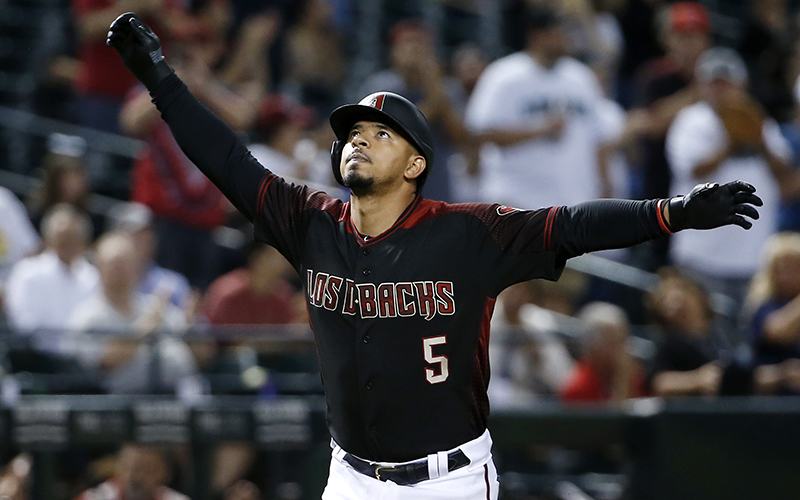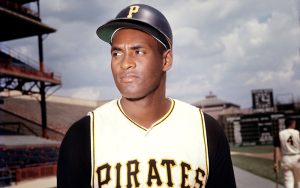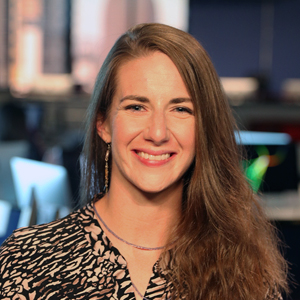
Arizona Diamondbacks teammates believe Eduardo Escobar is an idea candidate for the Roberto Clemente Award. (Photo by Ralph Freso/Getty Images)
PHOENIX– A scouting report from 1952 describes Roberto Clemente as “well-built” and predicts the 18-year-old Puerto Rican native will “mature into a big man.”
Those words were at once wrong and eerily prescient. Clemente didn’t become a big man, he became a great man, and long after his death is widely considered the consummate example of humanity, compassion and moral courage.
Major League Baseball began recognizing players for their philanthropic work in 1971 with the creation of the “Commissioner’s Award.” The annual recognition was rechristened in 1973 as the “Roberto Clemente Award” to honor current players who best exemplify Clemente’s commitment to community and dedication to helping others in need.
Eduardo Escobar is the Diamondbacks’ nominee.
Every September, each MLB club nominates a player to be considered for the Award and its winner is typically announced in late October during the World Series. That many players consider the Roberto Clemente Award as more prestigious than awards like the MVP or Gold Glove reflects the immense size of Clemente’s legacy.

As one of the most respected athletes in MLB history, Roberto Clemente inspired an award that many players find more prestigious than the MVP or Gold Glove. (Photo courtesy of The Clemente Museum / Duane Rieder)
It’s easy to understand why Escobar was nominated for the award and hard to envision a more worthy candidate after listening to players on the Diamondbacks gush about the third baseman.
“He’s not only a leader for the team on the field, but he’s a leader of the team off the field, as far as coming in every day with the right attitude,” Diamondbacks catcher Alex Avila said. “He’s the kind of guy who’s willing to help out other players and his teammates.”
Clemente’s legacy as a humanitarian and commitment to helping others is underscored by the way he died: in a 1972 plane crash, en route to deliver aid on New Year’s Eve to earthquake victims in Nicaragua.
Vera Clemente, Roberto’s widow, said Roberto felt a responsibility to help victims of the earthquake, “as if he had lost relatives of his own,” according to a PBS documentary on Clemente. Escobar displays a similar sense of responsibility that Vera says her late husband felt.
His own life experiences fuel his desire to uplift those in need, Escobar explained.
“It’s really a debt, and a calling I have to follow. Everything I do for the community is rooted in my own personal history,” Escobar said through an interpreter, recalling his growing up in poverty in Venezuela and having to work to help his mom support the family. “Those experiences motivate me to be out there in the community, to try to make a difference for kids everywhere and to do some good.”
Escobar’s leadership extends beyond his charity work and service to the community. His teammates rave about the positive impact he has in the clubhouse and describe how they look up to him and strive to emulate his approach to the game.
“He’s a tremendous leader and guys rally around him,” said Diamondbacks pitcher Robbie Ray. “When he speaks, guys listen. He’s really good at getting everybody fired up.”
Ray’s remarks echo those of Steve Blass, Roberto Clemente’s former teammate with the Pirates, who described how Clemente was able to unify a locker room that had become increasingly diverse, according to Clemente: The True Legacy of an Undying Hero, a biography written by Clemente’s family.
In the same way that Blass talked about Clemente, Avila described Escobar as a “unifying force” with an uncanny ability to bring people together.
“Escobar bridges that gap between some of the American guys and the Latin guys,” Avila said. “There’s a language barrier that exists in any clubhouse, so it’s important to have guys who can relate to (both English and Spanish-speaking) players. He does that really well.”
Shortstop Nick Ahmed noted that Escobar strikes a balance as both a fierce competitor and easygoing presence in the clubhouse.
“He sets a great example and leads by example,” Ahmed said. “But he is also vocal enough to keep things light and bring the intensity when we need it.”
Avila added that the work Escobar does off the field is something to be admired as well as followed.
“He’s a tremendous person. To be honest with you, I couldn’t ask for a better teammate,” Avila said.
